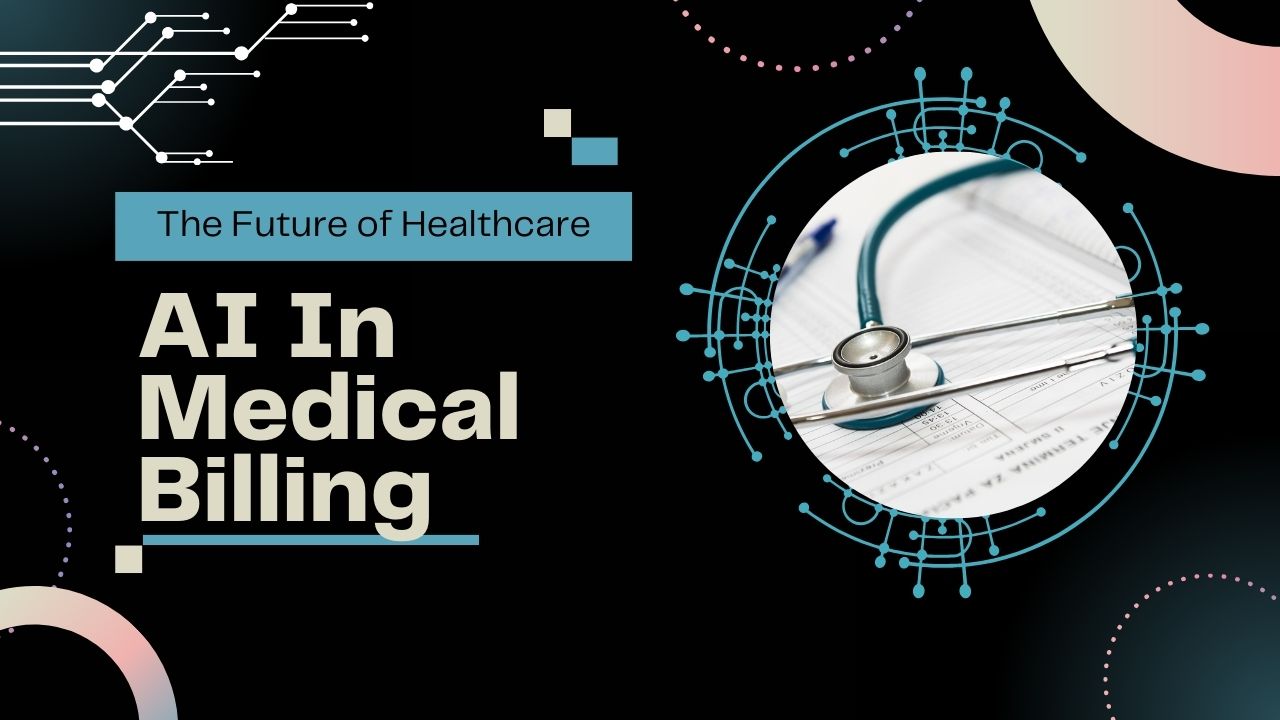
Table of Contents
Medical billing is a multifaceted and challenging process, prone to errors and inefficiencies, which imposes burdens on both patients and healthcare providers. This article explores the transformative potential of artificial intelligence (AI) in revolutionizing medical billing. AI offers tools to enhance financial outcomes, reduce errors, and streamline procedures, thus addressing the current challenges in the field.
AI in Medical Billing: A Complicated and Inaccurate Situation-Susceptible System
Navigating the labyrinthine landscape of medical billing unveils a complex network of regulations, codes, and documentation, culminating in a system riddled with intricacies and susceptible to errors. The billing workflow often falls prey to errors stemming from cumbersome manual procedures compounded by the meticulous interpretation of ICD-10 codes and the intricate negotiation of modifiers. Against this backdrop of challenges, the integration of AI in medical billing emerges as a beacon of hope. AI offers groundbreaking solutions to bolster productivity, diminish errors, and streamline processes, promising a brighter future for medical billing.
By harnessing advanced technologies like natural language processing (NLP), machine learning (ML), and robotic process automation (RPA), artificial intelligence (AI) in medical billing holds the promise of revolutionizing existing workflows, alleviating the burden of manual labor, and enhancing the precision of billing processes. However, despite its potential benefits, integrating AI into medical billing poses unique challenges, including the need for human oversight, concerns regarding data security, and the imperative to address potential job displacement. Nonetheless, the adoption of AI stands to usher in a new era of accuracy and efficiency, transcending the complexities and errors that have long plagued the medical billing sector.
The Challenges of Medical Billing
AI in medical billing introduces several challenges. Medical coding, a crucial aspect of billing, demands meticulous attention to detail and ongoing education to keep pace with evolving regulations. The reimbursement process is further complicated by common issues like manual data entry errors, incorrect coding, and missing information, often leading to claim denials. Moreover, the labor-intensive administrative burden of billing detracts from delivering quality patient care, contributing to physician burnout.
How AI Can Streamline Medical Billing
Artificial intelligence (AI) technologies, such as robotic process automation (RPA), machine learning (ML), and natural language processing (NLP), offer avenues for streamlining medical billing procedures. NLP systems excel in extracting relevant coding information from unstructured medical records through meticulous analysis. Meanwhile, RPA facilitates the automation of repetitive tasks like claim submission and follow-up, thereby liberating valuable resources. Additionally, ML algorithms leverage past data to anticipate and mitigate coding errors proactively.
The Benefits of AI in Medical Billing

Integrating AI into medical billing procedures offers numerous advantages. Providers stand to gain from expedited reimbursements and enhanced revenue cycle management through reduced billing errors. Patients benefit from fewer unexpected expenses and more precise statements, leading to increased satisfaction and trust in the healthcare system. Additionally, insurance firms can realize efficiency improvements in claims processing, ultimately benefiting all stakeholders involved.
Implementation Considerations and Challenges
While AI presents numerous potential advantages for medical billing, its implementation comes with its own array of challenges. Adherence to regulations such as HIPAA necessitates stringent data security and privacy protocols when integrating AI with sensitive medical records. Additionally, concerns surrounding job displacement due to automation in the healthcare sector must be mitigated through reskilling and upskilling initiatives. Moreover, human oversight of AI-generated outputs and physician supervision are imperative to uphold the accuracy and quality of billing processes. Although implementing AI solutions entails an initial investment cost, the long-term benefits far outweigh the challenges.
The Future of AI in Medical Billing
The future of AI in medical billing appears promising. Innovations such as real-time claim validation and predictive analytics hold the potential to enhance financial outcomes and streamline operations even further. Envisioning a future where medical billing is seamless, efficient, and error-free is within reach, propelled by continuous advancements in AI technology and increasing adoption by providers.
Conclusion
In summary, the integration of artificial intelligence (AI) emerges as a transformative catalyst in the domain of medical billing, offering more than just incremental enhancements but a fundamental shift in healthcare administration. By tackling longstanding challenges with inventive solutions, AI heralds a new era marked by heightened efficiency, precision, and patient-focused care. Through strategic utilization of AI technologies, healthcare providers can revolutionize not only their operational processes but also the core principles of care delivery. The potential benefits are vast, ranging from optimizing patient satisfaction to reinforcing financial sustainability.
FAQs:
What are the primary obstacles that the present medical billing system must overcome?
The article enumerates various challenges, including labor-intensive manual procedures, coding errors, claim rejections, delays in reimbursement, and burdensome administrative workloads.
What are some ways that artificial intelligence (AI) can simplify the medical billing process?
AI technologies have the capability to identify and preempt coding errors, automate routine tasks, extract coding details from medical records, and optimize revenue cycle management. These technologies encompass robotic process automation (RPA), machine learning (ML), and natural language processing (NLP).
What advantages may artificial intelligence bring to medical billing processes?
Integrating AI yields a multitude of benefits, including expedited reimbursements, reduced billing errors, improved revenue cycle management, enhanced patient satisfaction, increased efficiency for insurance firms, and overall operational streamlining.
What are the main factors to take into account and the difficulties in using AI to medical billing?
Implementation considerations encompass adherence to privacy and data security regulations like HIPAA, the implementation of reskilling programs to alleviate concerns regarding job displacement, ensuring human oversight of AI-generated outputs, and managing early investment costs effectively.
What role will AI play in medical billing in the future?
AI is expected to play an increasingly critical role in reshaping medical billing procedures in the future. With advancements in technologies such as robotic process automation, machine learning, and natural language processing, Artificial Intelligence (AI) holds the potential to automate repetitive tasks, streamline workflows, and enhance coding and billing accuracy.







